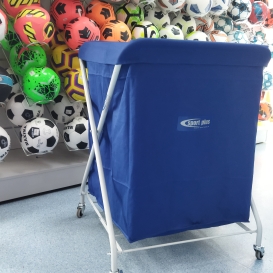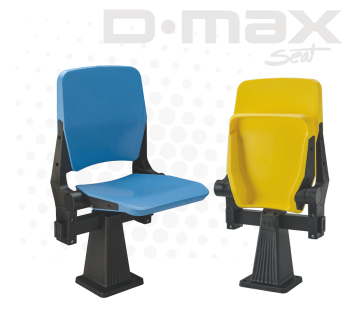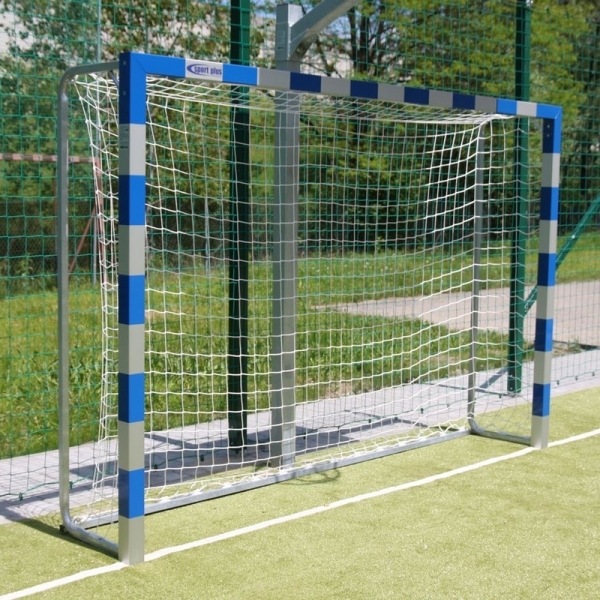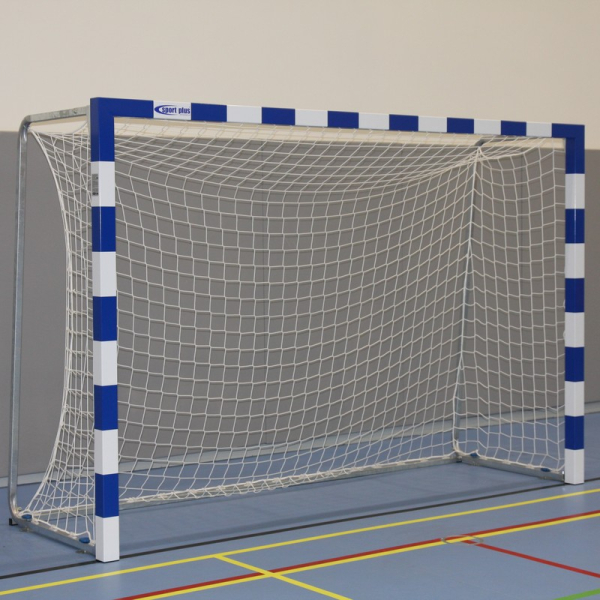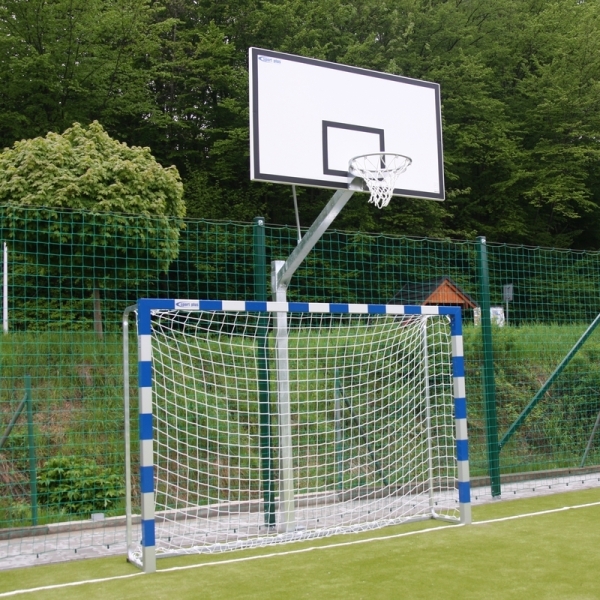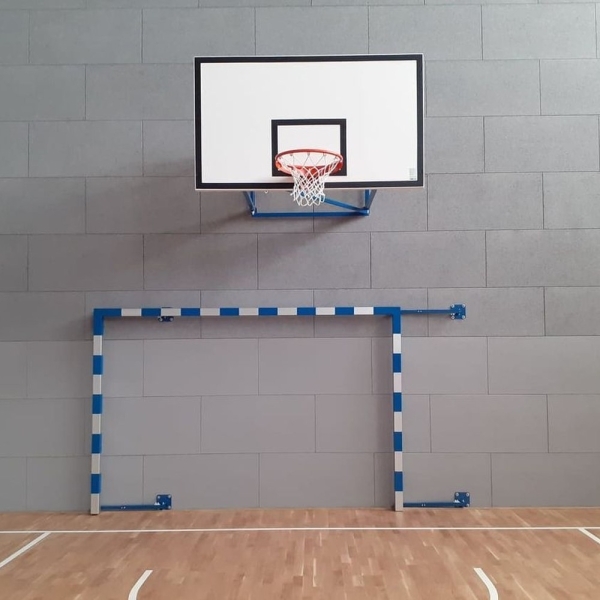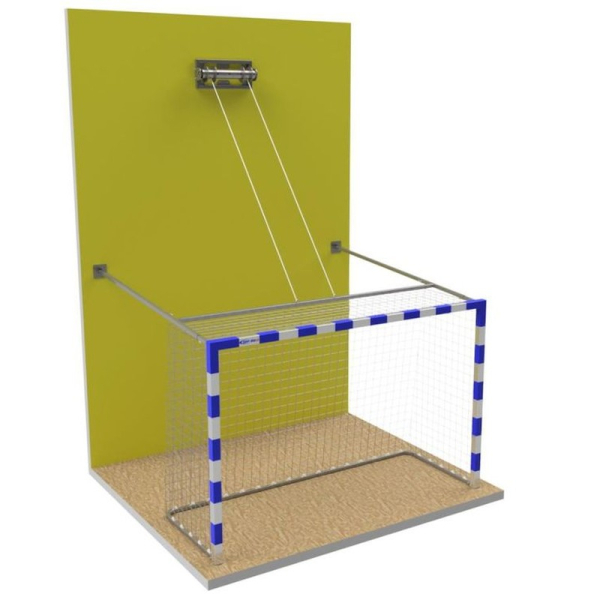Handball goals professional
Certified handball goals made and marked in accordance with the IHF standard are designed for any type of sports facility. Thanks to the high quality materials and advanced construction solutions used, they are characterized by maximum durability. In the assortment you can find handball goals designed for covered facilities, as well as outdoor fields, including the beach variety of the game. We also offer folding handball goals that will be ideal for smaller sports halls.
Goals that set the standard for the game
More useful information can be found at the bottom of the page.
-
Aluminum handball goals, reinforced, 3x2 m, for mounting in sleeves
5,412.00 PLN Tax inc.4,400.00 PLN NetCatalog no: 3.01.3
Availability: Made to order -
Beach handball goals, aluminum, reinforced 3x2 m
6,888.00 PLN Tax inc.5,600.00 PLN NetCatalog no: 3.01.5
Availability: Made to order -
Aluminum handball goals, 3x2 m, all-welded frame
4,551.00 PLN Tax inc.3,700.00 PLN NetCatalog no: 3.01.2
Availability: Made to order -
Handball goals aluminum 3x2 m, fixed to the wall
4,551.00 PLN Tax inc.3,700.00 PLN NetCatalog no: 3.01.2P
Availability: Made to order -
Steel handball goals, 3x2 m
4,956.90 PLN Tax inc.4,030.00 PLN NetCatalog no: 3.01.1
Availability: Made to order -
Aluminum handball goals, 3x2 m, frame bolted at corners
5,535.00 PLN Tax inc.4,500.00 PLN NetCatalog no: 3.01.8
Availability: Made to order -
Aluminum handball goals 3x2 m, wall-mounted, side-folding
4,551.00 PLN Tax inc.3,700.00 PLN NetCatalog no: 3.01.7
Availability: Made to order -
Aluminum handball goals 3x2 m, wall-mounted raised on the wall
4,551.00 PLN Tax inc.3,700.00 PLN NetCatalog no: 3.01.7
Availability: Made to order -
Gate - Mattress (signage sewn on)
5,535.00 PLN Tax inc.4,500.00 PLN NetCatalog no: 3.01.10
Availability: Made to order -
Goal - Mattress 200 x 300 cm
5,535.00 PLN Tax inc.4,500.00 PLN NetCatalog no: 3.01.9
Availability: Made to order -
PREMIUM aluminum reinforced handball goals (2 x 3 m) raised on the wall
16,236.00 PLN Tax inc.13,200.00 PLN NetCatalog no: 3.01.4
Availability: Made to order
Helpful information about handball goals in a nutshell
1 Technical specifications and materials
- Professional handball goals are designed to meet the highest international standards, both in terms of strength and safety. The structure is based on 80x80 mm square aluminum profiles or steel profiles depending on the model. Aluminum profiles are additionally ribbed, which significantly increases their mechanical strength to withstand dynamic forces that may occur during the game (ball strikes or pressure from players). In the case of steel goals, profiles with a wall thickness of at least 2 mm are used, which ensures adequate load-bearing capacity.- Aluminum, as a construction material, has several important advantages, including corrosion resistance and light weight. For steel goals, full corrosion protection is applied through hot-dip galvanizing, a process that protects the steel from oxidation and the damaging effects of weathering. As a result, goals designed for outdoor playgrounds are extremely durable and resistant to changing weather conditions such as moisture, UV radiation and low temperatures.
- The main frame of the goal, in both aluminum and steel versions, is usually welded in its entirety or, in some variants, bolted at the corners using special steel connectors. Welding the frame ensures the highest stability and structural integrity, which is crucial for intensive use in professional sports arenas. In models with bolted construction, the joints are additionally reinforced with steel elements that allow quick assembly and disassembly of the goal, which can be particularly useful in sports arenas where there is a need for frequent changes in the configuration of the field.
- The back arches of the goals, i.e. the structural elements responsible for stabilizing the net, are made of bent steel tubes with a diameter of 35 to 50 mm, depending on the specifications of the model. These tubes, like other steel elements, are hot-dip galvanized, which further protects them from mechanical damage and corrosion. The arches often have a folding design, which makes them easier to transport and store. Depending on the model, the depth of the arch (bottom and top) is available in different variants, from 50 cm to 120 cm, which makes it possible to adapt the goal to the specifics of the sports field - smaller arches are used in small gymnasiums, and larger ones on professional sports fields.
- The net is fixed with UMOS-type plastic holders, which are characterized by high resistance to tearing and resistance to UV radiation. They allow the net to be quickly and solidly fixed without the risk of moving it during the game. Polypropylene nets of various thicknesses and mesh densities are offered as standard, ensuring excellent control over the bouncing ball and durability for years of use.
- A not-to-be-missed issue regarding professional handball goals is the strict safety standards, resulting from the requirements of sports federations such as the IHF or local standards(PN-EN). One of the most important aspects of safety is the stability of the structure during the game. The goals are equipped with advanced mounting systems that ensure secure attachment to the ground, which prevents them from shifting or toppling during intense games. In addition, nets fixed with UMOS-type plastic brackets eliminate the risk of accidental hooking of players, which is particularly important in terms of safety of use. In the case of wall-mounted models, the safety locks in the unfolded position, as well as the goal folding mechanisms, are designed to minimize the risk of accidental folding or lifting of the goal during the game.
2 Purpose and application
Sports halls and indoor facilities- Goals installed in sports halls must meet stringent safety and durability standards, resulting from the requirements associated with the organization of games at the professional level. Goals intended for such facilities are most often equipped with a system of fixing to the ground using plate brands permanently mounted in the floor of the hall. The plate mounting ensures that the goals maintain maximum stability.
- In halls where space is limited, wall-mounted goals are also used. These are models mounted directly to the walls of the hall with steel brackets. Thanks to the possibility of folding the gates sideways or lifting them onto the wall, the usable area of the hall is increased, which is especially important in facilities where the gates must be periodically dismantled or moved, such as for other sports events. These models are preferred where the end line of the handball court is less than 50 cm from the wall, making it impossible to use standard goals with arches. Locking the goals in the unfolded position, for example, by attaching the lower brackets to brackets in the ground, ensures safety during the game, and folding the goals allows optimal use of the hall space.
Outdoor pitches
- Goals used on outdoor sports fields must be characterized by exceptional resistance to weather conditions. For this reason, models intended for outdoor playing fields are often made of hot-dip galvanized steel or aluminum profiles. Hot-dip galvanization provides an additional layer of protection, which significantly extends the life of the goals.
- Different methods of fixing goals are used on outdoor playing fields, both grass and concrete. For grass pitches, pin brackets are most often used, which allow the goal to be easily anchored in the ground, ensuring stability during play. For models mounted on concrete surfaces, the preferred solution is to use plate brands, which are embedded in the concrete, ensuring that the goal is firmly anchored.
School and recreational facilities
- Professional handball goals are also a popular choice for school and recreational facilities, where they often serve as multi-purpose goals for various sports. In school facilities, goals are most often installed in halls or on outdoor fields, where their versatility allows them to be used extensively - both for handball and other sports, such as futsal or mini soccer. Models with folding arches and easy assembly are particularly appreciated here, as they allow flexibility in the organization of the sports space and quick adaptation of the field to changing needs.
- The goals used in these places must be extremely durable and resistant to mechanical damage. For this reason, models with aluminum or steel frames are preferred, as they are easy to maintain and provide long-lasting use without the need for frequent repairs or maintenance.
Tournaments and professional games
- At the professional level, handball goals must comply with international standards, such as those set by the IHF (International Handball Federation). These requirements include not only the dimensions of the goals, but also specifications for materials, construction and safety of use. In the case of goals intended for professional competition, special attention is paid to the resistance to dynamic loads resulting from intensive actions of players, as well as to the stability of the structure during play. These goals should be robust enough to withstand any impact, but at the same time flexible in terms of assembly and disassembly so that they can be easily transported between sports facilities.
3 Additional features and benefits
- One of the biggest advantages of professional goals is that they can be widely personalized. The purchaser can choose not only the standard dimensions of the goal (3x2 m), but can also adjust such parameters as the depth of the arches (in the range of 50 cm to 120 cm), which allows you to perfectly match the goal to the size and specifics of the sports facility. In addition, color options include different marking options for the frame, nets and decorative elements, such as markings in blue, red or black, which can be customized to match the aesthetics of the sports hall or club colors.- Personalization also applies to nets, which can be made from a variety of materials with varying density and mesh thickness, depending on the needs of users. Standard polypropylene nets offered with high wear and UV resistance can also be available in other materials that meet specific usage requirements, such as for outdoor fields.
-Polypropylene nets, used as standard in most models, are resistant to stretching and deformation, which means that they do not lose their properties even after many years of use. Versions of goals designed for outdoor playgrounds are particularly resistant to moisture and UV radiation, so they retain their technical parameters for many years, regardless of weather conditions.
We encourage you to dig deeper and browse our separate offer dedicated to goal nets with different parameters click on the link
Ease of installation and mobility
- Modern handball goals are designed for quick and easy assembly. Models of folding goals in wall-mounted and free-standing versions are characterized by a design that allows quick unfolding and folding of the goal. The goal arches, which are often folding elements, are equipped with special locking mechanisms, which allows them to be easily folded for storage when the goal is not in use.
We encourage you to browse our range of handball goals or contact us so that we can choose the most suitable and adequate equipment to suit your needs.



